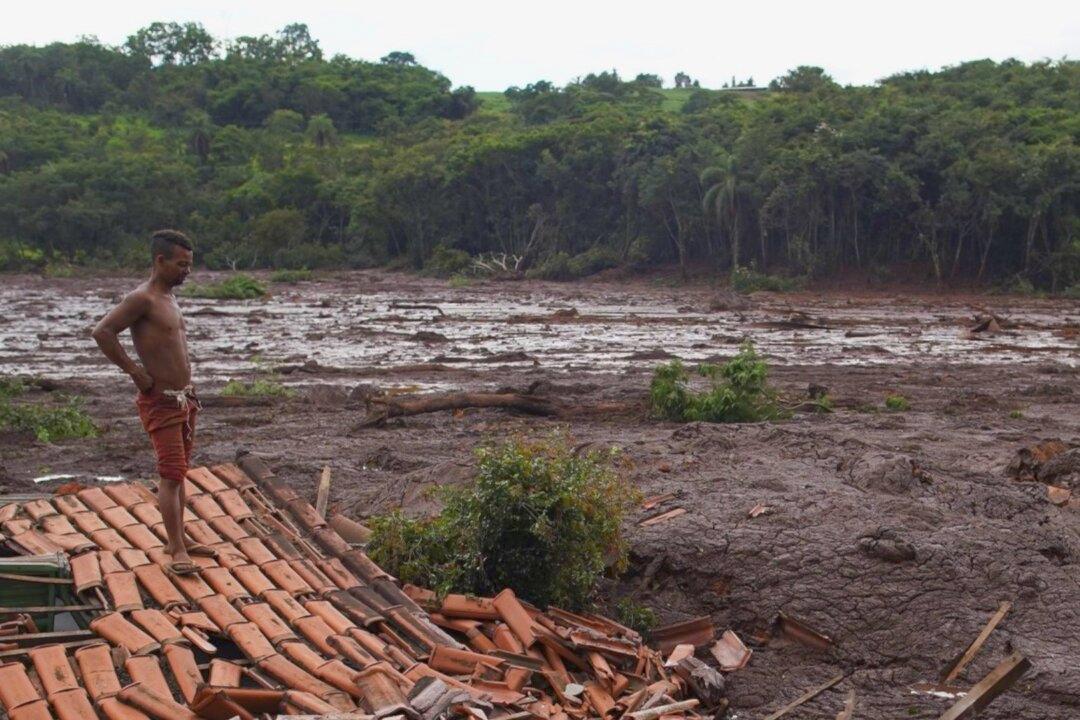BRUMADINHO, Brazil—Brazilian officials on Jan. 27, suspended the search for potential survivors of a dam collapse that has killed at least 40 people amid fears that another dam nearby, owned by the same company was also at risk of breaching.
Firefighters called for the evacuation of some 24,000 people from the Brazilian town hit. Authorities were evacuating several neighborhoods in the southeastern city of Brumadinho that were within range of the B6 dam owned by the Brazilian mining company Vale.





